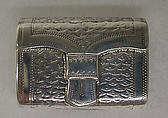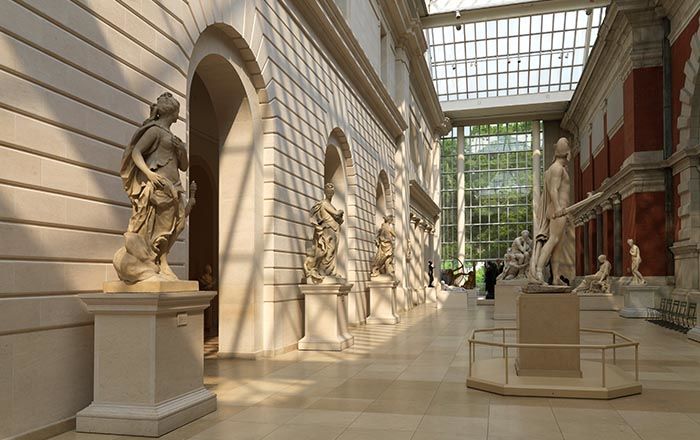Vinaigrette
Joseph Willmore British
Not on view
The maker of this vinaigrette, Joseph Willmore, was probably the most diverse manufacturer of "smallware" in Birmingham during the first half of the 19th century. He registered his mark at the Birmingham Assay Office as a snuff-box maker in 1808 and continued to register marks until 1843. His death in 1855 brought an end to the Willmore connection with silversmithing which had begun with his grandfather Thomas in 1773. As well as having premises in Birmingham, Joseph Willmore had a showroom in London. He was described as a gold and silversmith and patent snuffer maker. Bottle tickets (also known as decanter labels), beakers, small mugs, tapersticks, buckles, buttons and caddy spoons are among the multiplicity of items made by Willmore. A silver gilt miniature teapot by Willmore (63.53.20) is in the Met’s collection.
This vinaigrette in the form of a satchel or wallet is engraved to suggest pigskin; the simulated flap has a reserve which could have been engraved with a name or initials. The finely pieced and engraved gilded grille is formed of scrolls surrounding a central rosette.
A vinaigrette was intended to hold a tiny sponge dipped in aromatic vinegar. Its interior Is gilded to protect the silver from oxidation caused by the acidity of the vinegar. A hinged and decoratively pierced inner lid or grille kept the sponge in place while its perforations allowed the odor to waft through. A whiff of the vinegar might revive someone from a fainting spell. Such vinaigrettes were worn around the neck, on a chatelaine suspended from the waist, or carried in a pocket.
This image cannot be enlarged, viewed at full screen, or downloaded.

